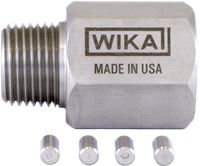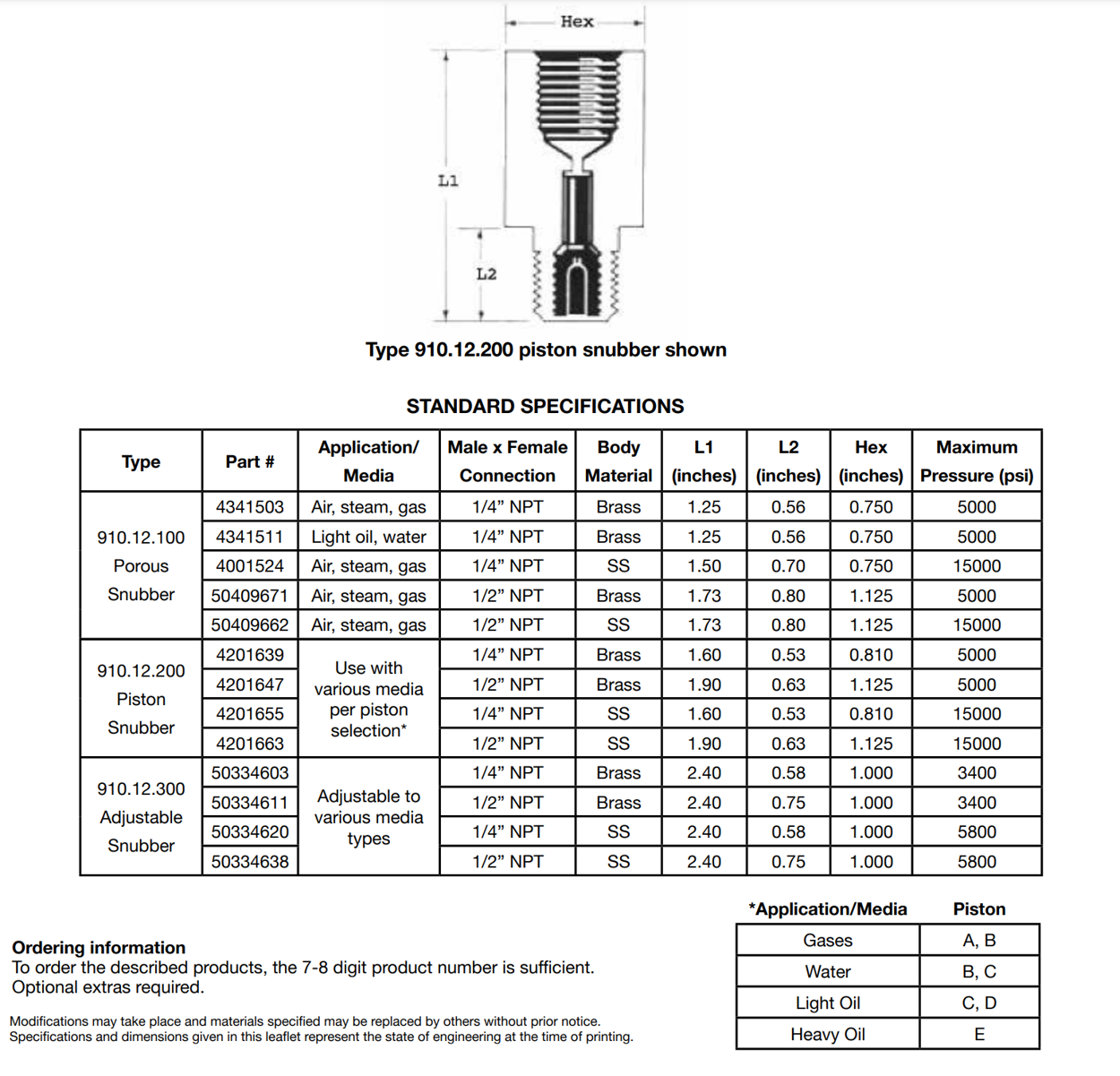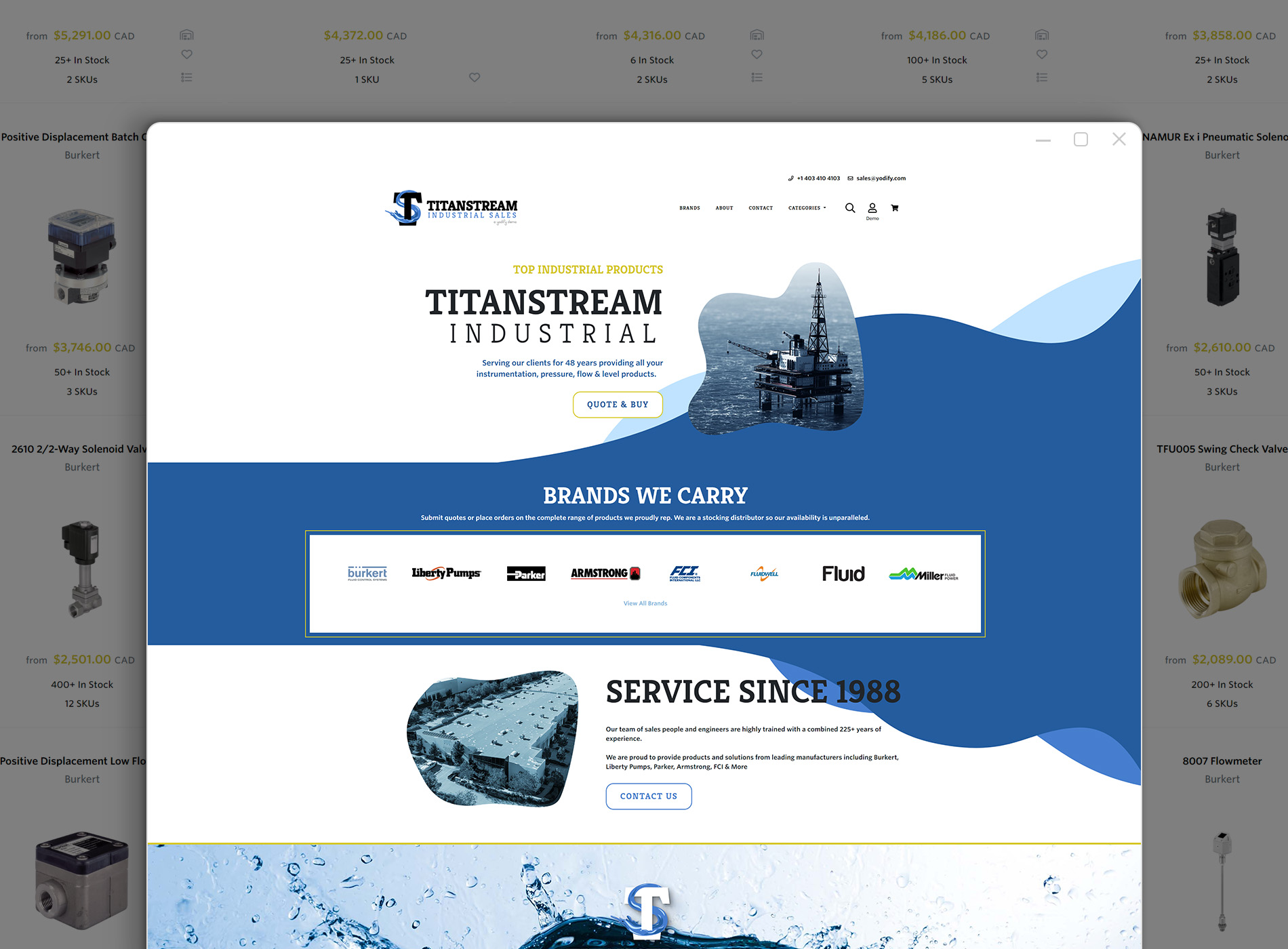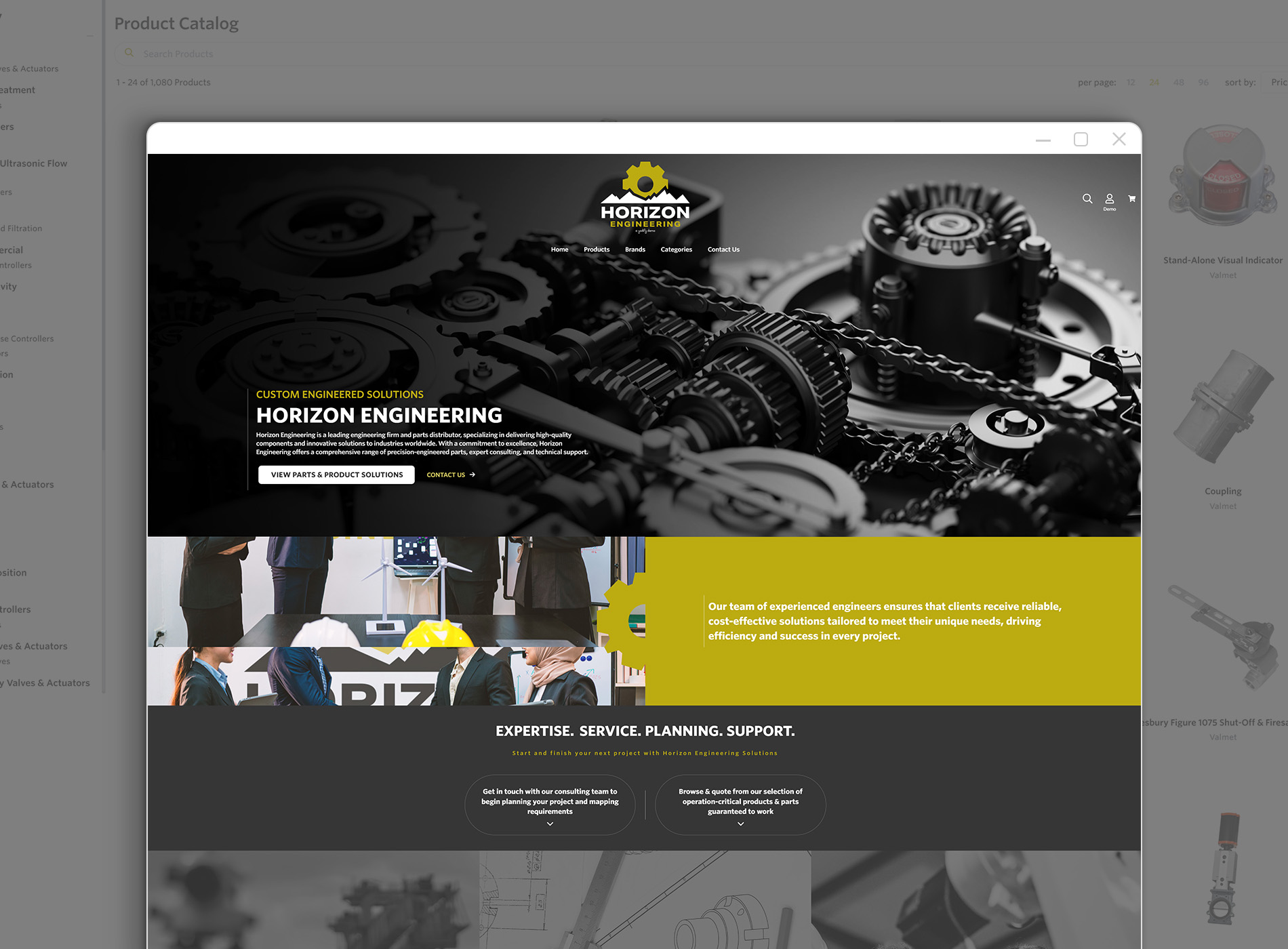910 Pressure Snubbers
Brand: WIKA Alexander Wiegand SE & Co. KGPressure snubbers help protect sensitive instruments from the harmful effects of damaging pulsations, surges and shocks generated in a pressurized system.
Just like with pressure gauges, pressure switches can also be affected by sudden pressure surges and pulsations, which can lead to premature wear, false triggering, inaccurate switching, or damage. By using a snubber, the pressure switch is protected from these rapid changes, and can enhance its performance, reliability, and durability, particularly in systems with pressure surges and fluctuations.
The pressure snubber works by evening out the rate at which the fluid or gas being measured arrives, dampening the effects of these pressure spikes, allowing the switch or gauge to respond more slowly and smoothly to changes in pressure. The snubber diminishes the pulsation in the line, thereby improving the consistency of the instrument reading, and extending the effective lifetime of the pressure switch.
A snubber does not alter the pressure of the process.
Snubbers are especially useful in systems with rapidly fluctuating pressures, such as hydraulic systems, to ensure the longevity and accuracy of the pressure switch or gauge.
Snubbers typically come in various forms, including porous metal discs, adjustable needle valves, or pistons with small orifices. The choice of snubber depends on the specific application and the type of fluid being measured.
Pressure snubbers are useful in protecting both pressure switches and pressure gauges. Here's how they help each:
Protect Your Pressure Switches
Protection from Pressure Surges
Snubbers dampen sudden spikes in pressure, which can prevent damage to the pressure switch's internal components.
Improved Accuracy
By smoothing out pressure fluctuations, snubbers help maintain more consistent pressure readings, leading to more accurate switch operation.
Prevent False Tripping
Snubbers help prevent the pressure switch from reacting to transient pressure spikes, reducing the likelihood of false triggering.
Increased Durability & Lifespan
Reducing the impact and stress of pressure surges on the switch's internal components extends the lifespan of the pressure switch.
Protect Your Pressure Gauges
Protection from Surges
Snubbers protect gauges from sudden pressure spikes, which can damage the gauge or cause it to read inaccurately.
Smooth Readings
By dampening pressure fluctuations, snubbers help ensure that the gauge provides a more stable and accurate reading.
Extended Lifespan
Protecting the gauge from rapid pressure changes reduces wear and tear, extending its operational life.

4001524

4201639

4201647

4201655

4201663

4341503

4341511

50334603

50334611

50334620

50334638

50409662
Specifications
Pressure Connection
- See Selection Chart
- 1/4" NPT Male x Female
- 1/2" NPT Male x Female
Enclosure, Body Material
- Brass or Stainless Steel
Piston Material - Type 910.12.200
- Stainless Steel
Needle Valve Material - Type 910.12.300
- Stainless Steel
O-Ring Material - Type 910.12.300
- Brass: Buna-N
- Stainless Steel: FPM (Viton)
Pressure Rating
- See Selection Chart
- Stainless Steel: 5000 - 15,000 psi
- Brass: 3000 - 15,000 psi
Temperature Rating
- -10° to 120° C
- 14° to 248° F
Application/Media
- See Table for Specifics.
- Air
- Gas
- Steam
- Light Oil
- Heavy Oil
- Water
Optional Extras (By Special Order)
- Pressure Connection: G 1/4 B, G 1/2 B
- Degreased for Oxygen Service, max. 725 psi at 60° C
- Material Certificate per 3.1.B to EN 10 204

Wika type 910.12 porous, piston, and adjustable pressure snubbers can be installed directly on the instrument to be protected.
Porous snubbers can be cleaned by back flushing with a commercial grade solvent.
Piston snubbers are generally self-cleaning, however they can be cleaned manually by removing the threaded cap inside the pressure port, then removing the piston. Metal parts should be cleaned in a commercial grade solvent.
Adjustable snubbers can be cleaned by backing the needle valve out from the body in a counterclockwise direction until it stops and back flushing the pressure port with a commercial grade solvent.





